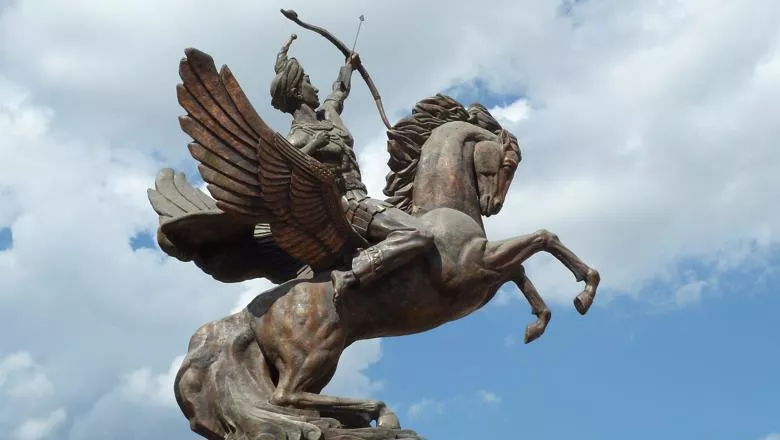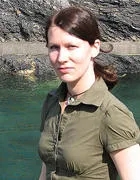I was delighted to hear about Katie's success and wish her many congratulations on what will be a fascinating project!
Professor Marion Thain, Executive Dean of the Faculty of Arts & Humanities
11 October 2019
Cosmological Visionaries awarded a £6m ERC Synergy grant
The project is led by Dr Katherine Swancutt (King's TRS), who is the recipient of one of the largest grants ever awarded to King's Arts & Humanities.


Cosmological Visionaries: Shamans, Scientists, and Climate Change at the Ethnic Borderlands of China and Russia, a project headed by Dr Katherine Swancutt of the Department of Theology & Religious Studies, has been awarded a European Research Council Synergy Grant worth over six million pounds.
This grant is the largest ever received by a researcher in the King's Faculty of Arts & Humanities, and will enable fascinating research into environmental initiatives of the future.
The project will look to address two key questions:
- How can scientists, shamans, priests, and other indigenous holders of animistic knowledge collaborate in regions of climatic vulnerability?
- What are the geopolitics of climate change and the policies that surround it?
Starting from the position that "cosmology often evokes religious ways of knowing or being", Cosmological Visionaries brings together anthropologists, ethnologists, environmental scientists, historians and philosophers of science and ethics, indigenous leaders, religious studies experts, and space and satellite researchers to examine how climate change is managed along China and Russia's ethnic borderlands.
Deforestation undertaken in Siberia to meet Chinese market demands for wood is melting Russia’s vast permafrost. This, in turn, accelerates the release of ancient greenhouse gases, which carbon capture and storage technologies of the future simply will not manage.
Cosmological Visionaries has arisen from this critical situation. It is, at its heart, an academic and a practical intervention, driven by two research teams – a China Team (based at King's) and a Russia Team (based at the University of Manchester). The project has a fourfold methodology:
- To uncover the scientific and indigenous views on climate change in Southwest China and Siberia;
- To mobilise dialogues between scientists and animistic peoples to mutually inform their approaches to climate change;
- To explore how collaboration can benefit both parties; and
- To map the policies and geopolitics of climate change in China and Russia.
"What wonderful news. This is one of the very special ways that King’s makes the world a better place through interdisciplinary research."
Professor Evelyn Welch, Provost (Arts & Sciences)
Scientists who collaborate with indigenous peoples can get more subtle data than when working alone. Indigenous persons who supply scientists with advice and logistical help can source scientific initiatives for managing local climate change.
This feedback loop between scientists and indigenous peoples, advocating for each other, can enable religious leaders and scientists to translate shared findings into visions that everyone can commit to. And with this very significant ERC grant, King's researchers and their collaborators will be able to push for these synergies like never before.
For further information about ERC Synergy Grants, please see the official ERC press release.
Project team(s)
King's College London, 'China team'
- Dr Katherine Swancutt (Principle Investigator and Lead of the China Team)
- Dr Tony Milligan (Senior Researcher, Philosophy of Ethics, King's TRS)
- Postdoctoral researchers in social anthropology and the history & philosophy of science [TBD]
- PhD researcher in social anthropology [TBD]
University of Manchester, 'Russia team'
- Dr Olga Ulturgasheva (Principle Investigator and Lead of the Russia Team)
- Dr Tony Milligan [working across both teams]
- Postdoctoral researchers in social anthropology and the history & philosophy of science [TBD]
- PhD researcher in social anthropology [TBD]
